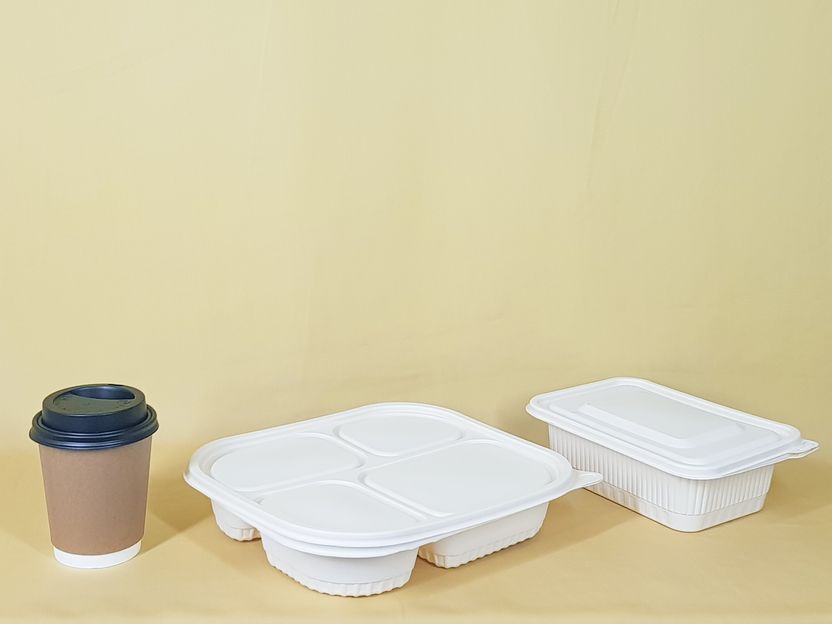Consumers like takeaways and delivery services with sustainability and convenience
Advertisement
The German catering industry has a packaging waste problem. Between 2000 and 2017, there was a whopping 175 percent increase in waste - a total of 303,000 tons of gastronomic service packaging in 2017. In the Corona year 2020, private household waste increased again by an average of 6 kg per person compared to the previous year, according to Destatis. This all has to do with the steadily increasing popularity of delivered food. Although consumers are quite critical of the development in waste, the desire for convenience seems to be widespread. Although consumers show interest in reusable systems for take-away packaging, they still use them quite rarely in practice. For example, just under half of respondents say they are interested in reusable containers, but only just under a quarter have ever used such systems. This will soon have to increase dramatically, because the industry will have to change from 2023 at the latest. This is when the reusability obligation will come into force for the catering and food trades, making a changeover unavoidable. According to the legislation, businesses must also offer reusable alternatives to all single-use packaging with a plastic content, for which they may charge a deposit - but these must not be more expensive overall than the single-use options.

Photo by Agenlaku Indonesia on Unsplash
Sustainable and practical packaging concepts in demand
More than half of consumers are willing to spend more money on environmentally friendly packaged food to order or take away. Since many still don't want to give up the convenience factor, suppliers can score points with innovative materials that customers don't have to return and can easily dispose of themselves. For reusable solutions, delivery services or takeaway restaurants can accommodate their customers' desire for as much convenience as possible by making it easier to return reusable containers via drop-off points, offering foldable containers or adding carry handles to containers. Manufacturer Rezzeat also offers consumers added value, as its 100 percent recyclable and reusable pizza boxes have added thermal insulation.
Ingredients from overseas under fire
Consumers in Germany are increasingly critical of ingredients imported from afar: Around half of respondents say they prefer regional ingredients from Germany in food from delivery services. This does not mean that consumers in Germany want to do without international cuisine. In 2021, more than three-quarters of respondents said that orderable meals are a good way to try different flavors from around the world. The winning formula: Great opportunities lie in international dishes with regional ingredients. For example, even highly popular ingredients like avocados, whose importation and farming leave a critical environmental footprint, can be replaced with regional alternatives with a little imagination. Some restaurants and delivery services, such as MaKE, bypass the exotic fruit and offer pea guacamole as a local alternative.
Promote climate benefits of dairy alternatives
Consumers are increasingly aware that lower meat consumption in turn leads to lower greenhouse gas emissions. But only one in ten are aware that this is also the case when consuming dairy products. For example, using an oat-based cream alternative instead of conventional cream can reduce CO₂ emissions per kilogram by 88 percent. Catering operators can set a positive example here and make greater use of dairy alternatives in food and beverages and actively promote their benefits. In this way, they can pick up customers with sustainability concerns who have not yet considered the impact of dairy products on the environment.
Mintel's conclusion
According to the Mintel study, Lieferando is the undisputed market leader among delivery services in Germany - far ahead of Wolt and Uber Eats. Whether market giants or challengers, they all need to prepare for reusable systems by 2023. Despite consumers' increased environmental awareness, the Mintel study shows that the convenience factor is still important in delivered food. The industry's goal must therefore be to develop concepts that are both environmentally friendly and practical. Catering operators can also focus on more sustainability in terms of ingredients. Thus, more environmental awareness is also an opportunity for the industry to attract customers who do not yet use delivery services or use them very little out of concern for the environment.
Note: This article has been translated using a computer system without human intervention. LUMITOS offers these automatic translations to present a wider range of current news. Since this article has been translated with automatic translation, it is possible that it contains errors in vocabulary, syntax or grammar. The original article in German can be found here.






























































